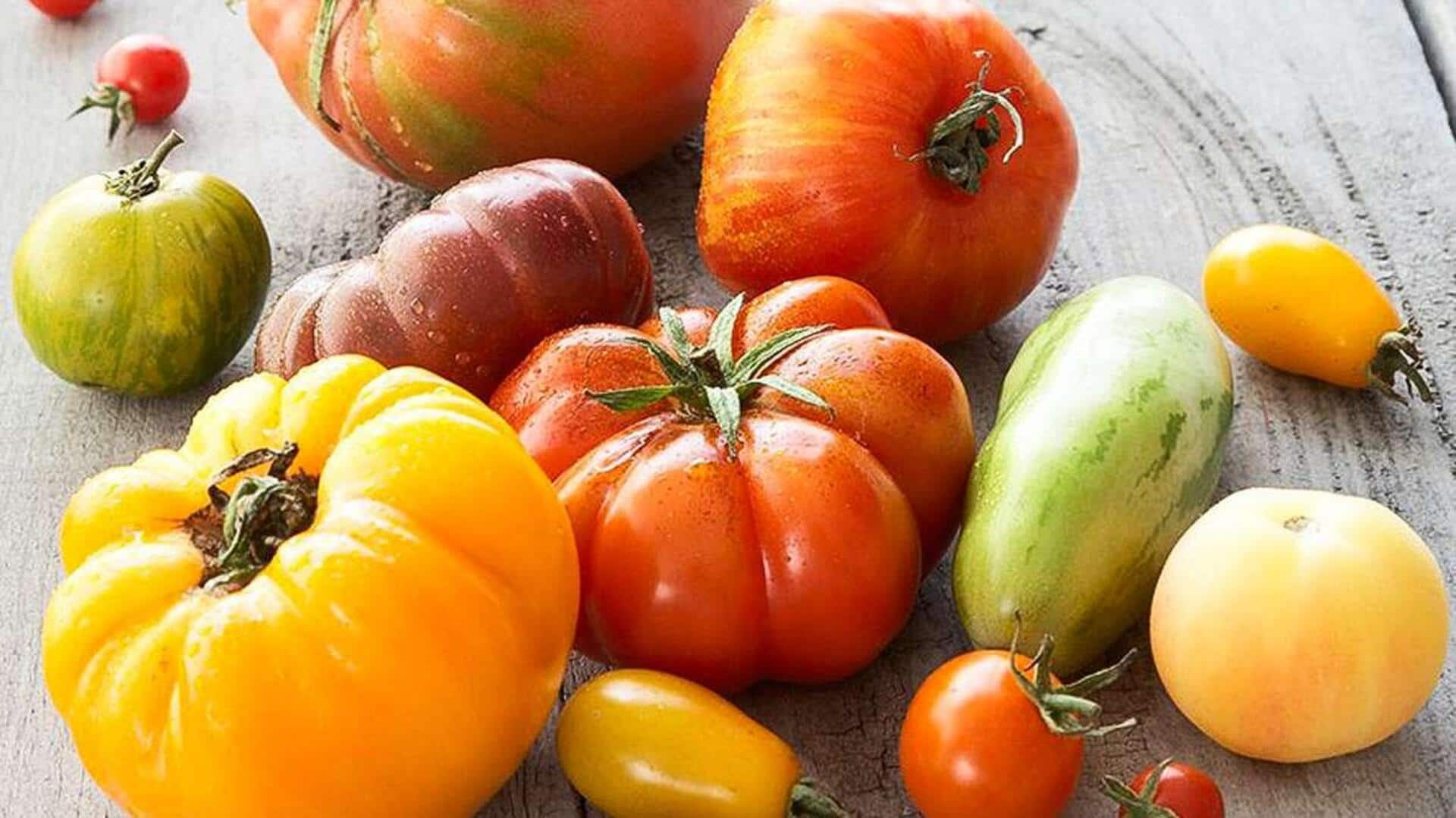
Growing heirloom tomatoes in small urban gardens
What's the story
Cultivating heirloom tomatoes in small urban gardens provides an opportunity to enjoy distinctive tastes and varieties not commonly found in supermarkets. Despite the limited space, with the right techniques and care, you can reap a bountiful harvest of these delicious fruits. This article offers valuable tips for maximizing yield and maintaining the health of your heirloom tomatoes in an urban environment.
Variety selection
Choosing the right varieties
Choosing the right heirloom tomato varieties is key to success in small gardens. Opt for dwarf or bush types that need less space and can be easily supported by cages or stakes. Varieties such as Balcony Beauty, Tiny Tim, and Patio Princess are perfect for containers and small beds. They not only provide compact growth habits but also deliver tasty fruits.
Vertical gardening
Utilizing vertical space
In urban gardens where ground space is limited, going vertical can significantly expand your growing area. Train indeterminate (vining) tomatoes to grow vertically: Use trellises, stakes, or vertical planters to guide and support tomato plants. This not only maximizes space but also enhances air circulation around the plants, minimizing disease risk. Training tomatoes vertically also simplifies harvesting and keeps fruits cleaner by raising them off the ground, away from pests.
Containers
Container gardening tips
Heirloom tomatoes can do well in containers, provided they have ample space for root development. Opt for a minimum pot size of five gallons per plant. Make sure containers have adequate drainage holes to avoid waterlogging, which can cause root diseases. Use a high-quality potting mix enriched with compost. This ensures your heirloom tomatoes get the essential nutrients they need to thrive.
Water & feed
Watering and feeding practices
Consistent watering is crucial to avoid stress, which can cause blossom end rot or fruit cracking. Deep watering is better than frequent light sprinkles, as it promotes strong root growth. Feeding with a balanced liquid fertilizer every two weeks promotes healthy growth and fruit production. But don't over-fertilize, as it can cause excessive leaf growth at the expense of fruit.
Pest control
Pest management strategies
Pests are an even bigger issue in dense urban areas because there isn't the biodiversity that would naturally keep those pests in check. Be vigilant! Regularly check your plants for any signs of pests like aphids, spider mites, and tomato hornworms. Consider introducing beneficial insects like ladybugs or using insecticidal soaps as organic solutions to manage pests without resorting to harsh chemicals that could harm other urban wildlife or pets.